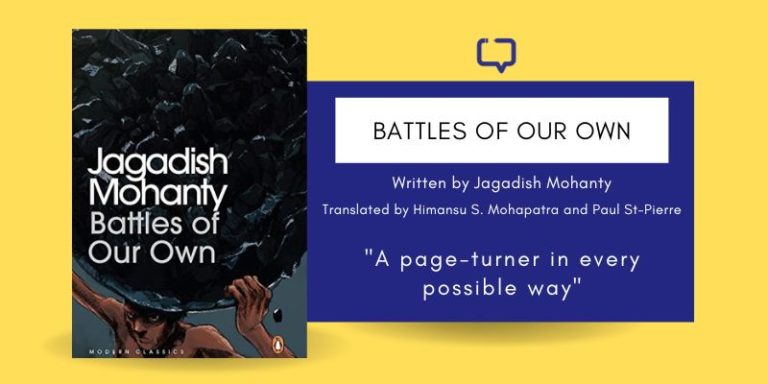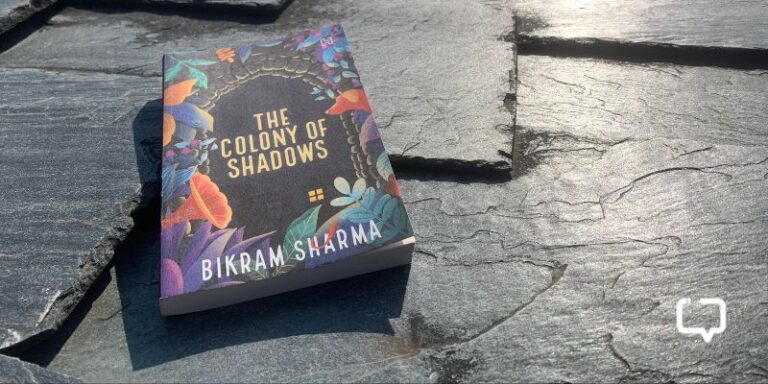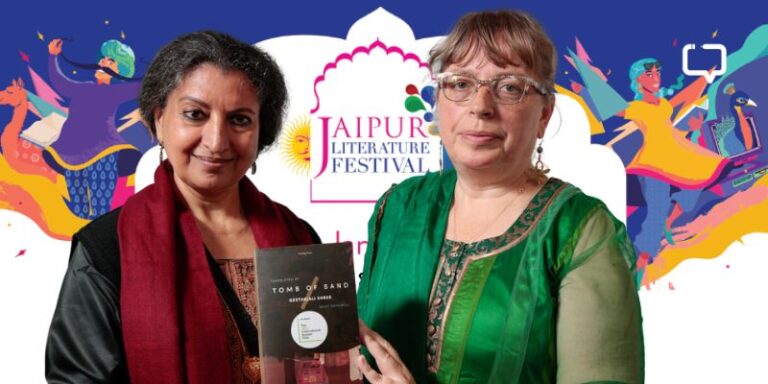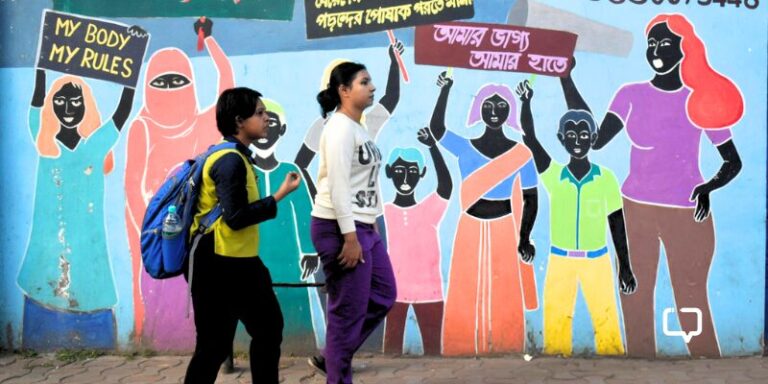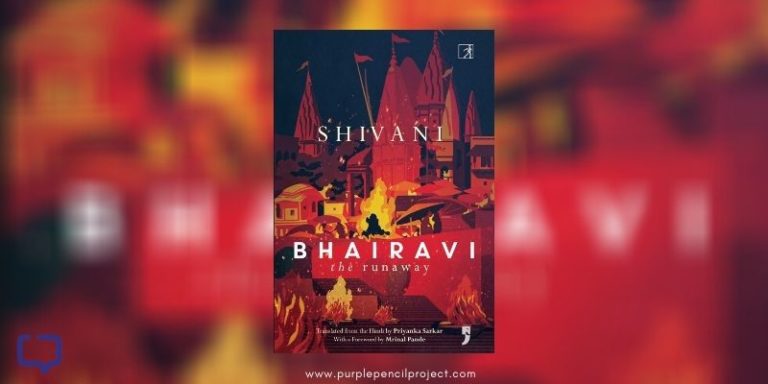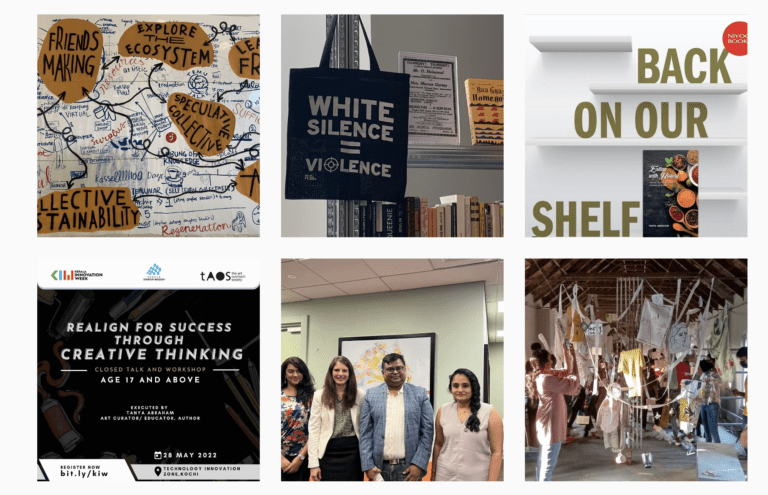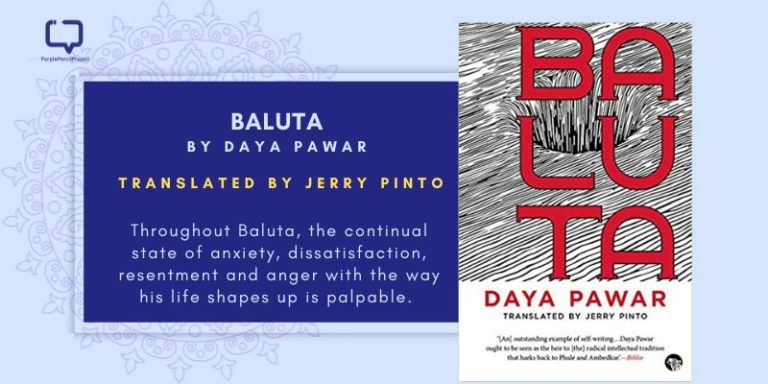Priyadarshini Gauri reviews Conversations Regarding the Fatalistic Outlook of the Common Man by Kuzhali Manickavel (Published by Blaft Publications, 2022)
A fatalistic outlook is the belief that things are out of our control, and our destinies are externally determined. It was perhaps this book’s destiny, that Kuzhali Manickavel read a Tamil Nadu State Board textbook in the 90s which correlated India’s population explosion to the fatalistic outlook of the common man. The phrase got stuck somewhere in the author’s quirky brain and ended up as the title of this weirdly hilarious book in dialogues, Conversations Regarding the Fatalistic Outlook of the Common Man.
The different conversations between K, which in the context of this book on common man seems to be a stand-in for the author, or at least the voice she has assumed for this book, range from topics like Indian movies, Government Offices, Hindi imposition, Facebook, and even Complan (the popular health supplement that was supposed to make kids taller, stronger, and sharper in the 90s. Actually, that was Horlicks, but I wouldn’t know because I used to have Bournvita). Warren Anderson is mentioned, and Niira Radia makes an appearance, but the star of this book is K’s Niece (N).
We encourage you to buy books from a local bookstore. If that is not possible, please use the links on the page and support us. Thank you.
Conversations and the Very Surreal Humour of Kuzhali Manickavel
One of the conversations that made me fondly miss the late Jaspal Bhatti’s superlative comic sketches on bureaucracy, “Government Offices Make Us Sad 🙁 “is a conversation between K and her friend S as they discuss the games people are made to play at the said offices.
“So what was today’s game?
K: First we played Repeat After Me Because You Are Stupid.
S: I’ve never played that!
K: It’s definitely one of the Old Skool games. The esteemed Gee Oh Official yawns at your kazillion papers. Then he says ‘You need to get attestation from two freshwater ducks that are on their way to Latvia.’
S: Then?
K: Then he looks at you and says very slowly, ‘You need to get? Come on, tell me?’
S: Oh! It’s like filling in the blanks!
K: It really does wonders for your self-esteem to be an adult and sit there while another adult talks to you like you are a three-year-old that eats glue.
S: It is a very long game?
K: It really is. We were playing for about an hour before we finally got to ‘Two freshwater ducks that are on their way to? Come on come on say me? Lat-vi-a. Very good.’
S: You played that the whole day?
K: No, after that we had a very dramatic session of You Don’t Have A Pen?!”
Very Real Issues on Very Virtual Platforms
While the surreal humour had me chuckling at ducks in Latvia and other such absurd elements, there is also a very nuanced conversation about Kashmir. Not. The conversation is as real as fights on Twitter, with opinions lying on two extremes of a spectrum, one end being “Kashmir Beautiful Kashmir” and the other “HOW DARE YOU SAY ANYTHING BAD ABOUT INDIA!
“ In order to prove their patriotism and that the caps lock was functioning on their keyboard, many fine people took to endlessly tweeting things like KASHMIR BELONGS TO INDIA and KASHMIR IS OURS and KASHMIR DOES NOT BELONG TO PAKISTAN BECAUSE IT BELONGS TO INDIA OK. Many attempts at a nuanced or even just an informed discussion were quickly nipped in the bud because JAI HIND.”
With Twitter shouting matches, Facebook hasn’t been left out of the conversations either. “Remember When We Were All Friends on Facebook” comments on the time we were all writing quirky bios for ourselves and aggressively searching and adding not just long-lost pals but even mere acquaintances and comparing how many “friends” we had on the social networking website. “Let’s Change the World with Facebook!!!”reminds us of the good times when we fought off all social evils on social media.
“K: Well today I put up status updates to raise awareness about famine in Africa—
S: Which country?
K: What?
S: Which country in Africa?
K: What?
S: Wow dude.
K: Yeah so to raise awareness about famine in Africa and endangered animals in America.
S: Why can’t you save endangered animals in India?
K: Not ‘save’, raise awareness. Awareness is more important.”
The Very Difficult Conversations about Gender Identity
In most of these trippy conversations, Manickavel infuses K with a childlike, almost annoying energy, one that only meets its match in her Niece (N). In conversations with N, the roles are reversed, and K has to try hard at being grown-up and explain certain things (with great difficulty) to her. There are conversations about bad words and ice creams and dead insects, but the conversations that really hit it out of the park for me are the ones that deal with gender identity.
“N: I don’t have a penis.
K: That’s true, you don’t.
N: Because I’m a girl.
K: Well, not exactly.
N: Hm?
K: I mean some girls have penises. And some boys have vaginas. Is that confusing? If it’s confusing then I didn’t tell you this okay?
N: Can I be a boy?
K: Sure. Would you like to be?
N: Not right now.
K: Well that’s fine. You can be whatever you want.
N: Can I be a house?
K: You can’t be a house though.
N: A shoe rack?
K: You can’t be a shoe rack. Actually there a lot of things you can’t be, sorry bro.”
It is interesting to see how K struggles to explain gender identity concepts, especially when talking about her friend who uses the pronoun “they” and yet how easily the child accepts and remembers to call them “they” when K herself keeps slipping and calling them “him”.
In yet another conversation where N and her friend Aadhi, a boy, both decide to wear dresses to a birthday party, K blunders through trying to establish that while there is nothing wrong with a boy wanting to wear a dress, people, in general, have trouble accepting it.
In the kind of maturity, only a child can show, N and her friend just decide to stay home and play rather than go where they must conform to certain societal expectations. These conversations with N dealt with the most current issues that we all are still trying to navigate and were truly the highlight of this book on the common man.
Some Not Very Old but Still Stale News
There are some lovely fable-like passages about events that are over a decade old news, such as the Niira Radia tapes and the injustice in the case of the Bhopal Gas Tragedy and Warren Anderson’s trial. Because this is stale news, the conversations that follow these introductory passages lose their appeal and feel silly and repetitive.
This is a sense that I got from most of the second part of the book (barring the conversations with the niece which were *chef’s kiss!*) I would’ve laughed at them a decade ago, or perhaps even now if they were made into short Monty-Python-esque sketches.
But in the book on the common man, all the silliness got a bit tiring, a feeling echoed in this conversation where K’s friend S urges her to talk about something serious and relevant rather than nonsense for a change:
“S: OK, let’s talk about the budget.
K: Why?
S: Because it’s normal, serious, important, and relevant to our daily lives. What do you think about the budget?
K: I think it’s neat how the words ‘bud’ and ‘get’ come together to form the word ‘budget’, especially when there is no ‘j’ sound in either ‘bud’ or ‘get’.
S: What books have you read lately?
K: I don’t like reading, it hurts my ankles.”
There you have it. There shall be no serious conversation in this book. As a reviewer who is wont to ask themselves what is the purpose of this book and unable to find a sensible answer, I am reminded of one of Manickavel’s podcast interviews where she spoke about trying to explain a vivid dream that she had as a child to her mother,
“I was very aware of that feeling of trying to tell a story and failing. It is certainly something that is on my mind a lot because I feel that the story that I actually want to tell never comes across and I feel that’s how stories work.”
That may be the fatalistic outlook of the writer talking, but unlike Complan, the book makes no promises to make you taller stronger, or sharper. It’s just sugar and chocolate in your milk. And it tastes bloody good if you have a taste for the absurd.
Best quote
K: Well, after having a family conference which, for some reason, involved assorted second cousins in Delhi, it was decided that Aadhi shouldn’t be allowed to wear a dress to the party.
N: Why but.
K: Because it might make other boys wear dresses too? It’s unclear bro.
N: We bring dresses for everyone then.
K: What do they think this is, some kind of viral fever?
N: Are they mad I’m wearing a dress too?
K: No, you’re fine. And they seem fine with Aadhi wearing wings. As long as he’s wearing pants or shorts with it.
N: But I can’t wear pants or shorts.
K: No, you can.
N: Why.
K: I don’t know. There are those who think you can’t wear pants or shorts
though. FYI.
N: We should wear nothing.
K: No, definitely not that. Ever.
N: I don’t know what’s happening.
K: So here’s the deal. Aadhi can wear the wings, pants or shorts but no dress. You can wear anything.
N: I wear my plastic bag dress then.
K: You can’t wear that.
N: You said—
K: Dude that’s literally just a plastic bag, you cannot wear a plastic bag to a party. Your mom will shave off my eyebrows.
N: Can I shave off my eyebrows?
K: No.
N: Can I shave off Aadhi’s eyebrows?
K: No dude what the heck?
N: Aadhi wants to wear the dress but.
K: Aadhi, you can totally wear the dress anytime here, whenever you want.
N: OK.
K: But if you want to go to the party—
N: We stay here.
K: But I thought you guys were excited to go. I thought there was going to be pizza.
N: It’s fine. We will wear dresses and stay here.
K: OK. We can order pizza I guess.
N: And we can dance.
Have you read this fatalistic outlook of a common man? What do you think of it? Drop a comment below and let us know!

As part of our effort to compensate our writers better, we at Purple Pencil Project have launched the #PayTheWriter initiative, where readers can directly show support and appreciation for our wonderful team.
Scan or upload this image on your UPI app, and show them the love 😀












